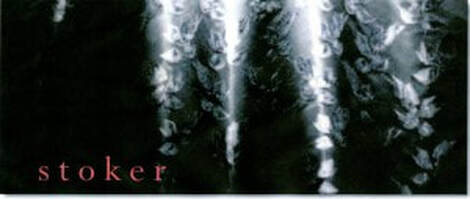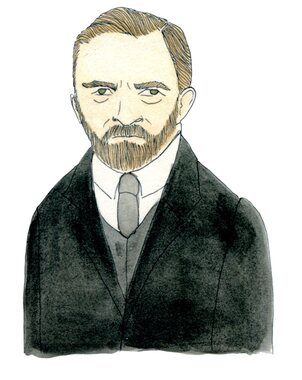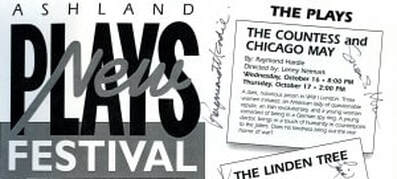Writing for Stage, Film, Television, and Video
|
"In the age of the phonograph and the gasoline combustion engine, of the telegraph and the telephone, I became possessed of a story - or should I say it came to possess me." Bram Stoker in Stoker.
The musical, Stoker, is currently in development with Joe Jackson, who is writing the lyrics and music. Stoker takes place on the stage of the Lyceum Theatre, London, in May 1893, during the dress rehearsals for a revival of Victorian melodrama The Bells. Bram Stoker's fearful odyssey into darkness brought forth the most terrifying villain in modern literature. But who was this mythic archetype of evil? The search for Dracula's real identity takes the audience from bleak terrors of Stoker's Irish childhood into the heart of Victorian's London's most celebrated theatrical company. An Irishman at the center of the British Empire, Stoker managed the Lyceum Theatre for the celebrated actor Sir Henry Irving, and was a friend of Ellen Terry, Oscar Wilde and the Prime Minister, William E. Gladstone. The action happens within a period of 24 hours as the character of Dracula is maturing in Stoker's imagination. We are witnesses to Stoker's journey through terror and despair, his struggles with his childhood memories and his present fear of illness and death. Finally, he transcends his position as a bean-counting manager under Henry Irving, and becomes the creator of Dracula, one of the most powerful antagonists in modern popular fiction. The musical is currently being developed with the Directors Company in NYC.. |
"Welcome to my house! Come freely. Go safely. And leave something of the happiness you bring!"
|
OTHER STAGE WORKS
Hardie wrote Who Flies The Nets, for Graham Padden's Document Theater Company in the mid 1970s. A "portable" docudrama it was based on an early civil rights march that was attacked at the township of Burntollet. The company traveled the UK and performed it in working men's clubs and small theaters from Cardiff to Sheffield to Liverpool. It had a final one-week run in a small theater in London. The company was invited to perform a the Angel, Islington, but couldn't because most of the actors had previous commitments. At the same time, Hardie was commissioned by Ireland's Abbey Theatre to write a play about the Irish playwright and essayist Oliver Goldsmith. But Few Soldiers, which was based on Goldsmith's lesser known essays, was directed by Michael Colgan, and performed at an international Goldsmith festival in Cork, Ireland, in 1974. Blue Heaven was workshopped at the Director's Company in New York City featuring Colm Meaney, Laila Robins, Peter Gerety, Mary Bacon and Melinda Page Hamilton. The Countess and Chicago May: In 1916 the Irish revolutionary leader Countess Markievicz was imprisoned in England for her part in the Easter Rebellion in Dublin. She was the only woman in the leadership in the rebellion, and the only leader not to be executed. She was imprisoned in Aylesbury, England, with a colorful Irish-American grifter nicknamed Chicago May. The Countess and Chicago May is based on their shared life in prison. |
TELEVISION AND FILM
In the mid 1970s, Hardie sold two television scripts to BBC for Play for Today, A Soldier's Song and Rub A Dub Dub.
Fleet was partially developed as a series and bought by BBC television in the late 1980s. It was later developed into a novel and published by Hodder and Stoughton (see Writer page).
The Fenian Ram was commissioned and developed for Richard Broke at BBC film.
The screenplay Pig Valley Choir was developed for Kenneth Trodd at BBC Television.
Dead Masters was optioned by Mary Anne Page, an independent producer at Fox, as a project for Wesley Snipes.
In the mid 1970s, Hardie sold two television scripts to BBC for Play for Today, A Soldier's Song and Rub A Dub Dub.
Fleet was partially developed as a series and bought by BBC television in the late 1980s. It was later developed into a novel and published by Hodder and Stoughton (see Writer page).
The Fenian Ram was commissioned and developed for Richard Broke at BBC film.
The screenplay Pig Valley Choir was developed for Kenneth Trodd at BBC Television.
Dead Masters was optioned by Mary Anne Page, an independent producer at Fox, as a project for Wesley Snipes.


